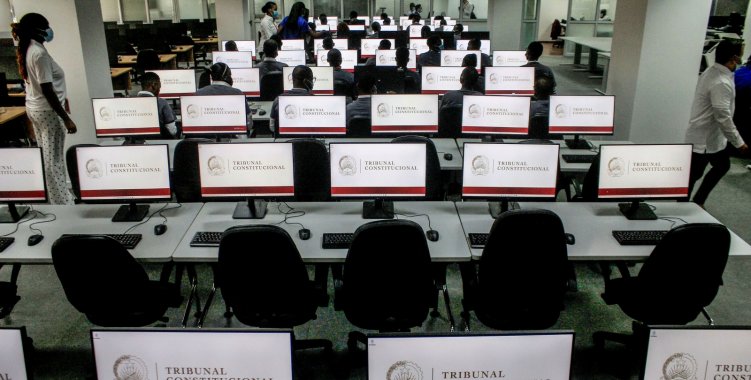According to the expert, who was speaking to Lusa as part of the celebrations of the 14th anniversary of the Constitution of the Republic of Angola (CRA), marked this Monday, the Angolan constitutional text contains positive aspects, but also many challenges.
The expansion of the charter on fundamental rights and freedoms, the constituent power that materialized and approved the CRA in 2010, as well as the distinction between jurisdictions, with the differentiated role of higher courts, constitute important aspects of the Constitution, she noted.
"The differentiated role of the Supreme Court (TS), the Court of Auditors, the Constitutional Court (TC), the Attorney General's Office, the creation or institution of public defense, the Angolan Bar Association, as a body important for the rule of law, symbolize progress in the Constitution", she said.
Margareth Nanga pointed out the limits of the CRA and decentralized power, recognizing the power of traditional authorities and the appreciation of custom, elevating custom to the category of constitutional law, as well as other "important gains".
The Angolan TC promotes, from this Monday until Saturday, "Constitution Week", to celebrate the 14th anniversary of the Angolan Constitution, approved on February 5, 2010 and partially revised, for the first time, in 2021.
For the Constitutional, the celebrations of the country's Magna Carta constitute an occasion "for profound reflection" around the principles and values enshrined in the CRA.
Margareth Nanga considered, on the other hand, that, despite the aforementioned positive aspects, the CRA has many challenges, the main one being the organization of political power and the concentration of powers in the President of the Republic.
"The main challenge is how it (the Constitution) organizes political power and the way it concentrates a series of powers in the figure of the President of the Republic, as a singular body, making this body a super body that ends up having many powers over the others", she said.
The university professor also stated that, as a consequence of the "super concentration of powers" in the President of the Republic, the Constitution "attenuated, without explicitly consecrating, those mechanisms that are fundamental for implementing the principle of overcoming and interdependence of functions".
Among these he pointed out "the mechanisms of control and supervision of power, how the National Assembly supervises the executive, how the courts can also supervise parliamentary acts, how the President of the Republic supervises the legislative acts of the National Assembly and vice versa", she explained.
According to the jurist, the Angolan CRA is also "regressive" as it does not enshrine, in many aspects, guarantees that give citizens or holders of sovereign powers the necessary protection and confidence to be able to exercise their rights".
"So, these are the challenges that I see from the text, but it is clear that then we have to analyze the CRA in a practical dimension, how it is applied, how it is materialized", she noted.
The practical materialization of the CRA, added Margareth Nanga, translates into a "bigger problem in Angola, as there have been some formal advances in the number of rights that have been enshrined, but in practice these rights do not materialize".
"And this worsens the setback of the CRA, which is its ineffectiveness, its non-materialization, its non-application, so the lack of implementation of the CRA also ends up being a problem for the CRA", she argued.
The control of the judiciary, with judges allegedly involved in corruption and nepotism, without the necessary force from the Superior Council of the Judiciary "to discipline the judges", raises, in the jurist's opinion, the discussion about the balance of this and its respective control.







